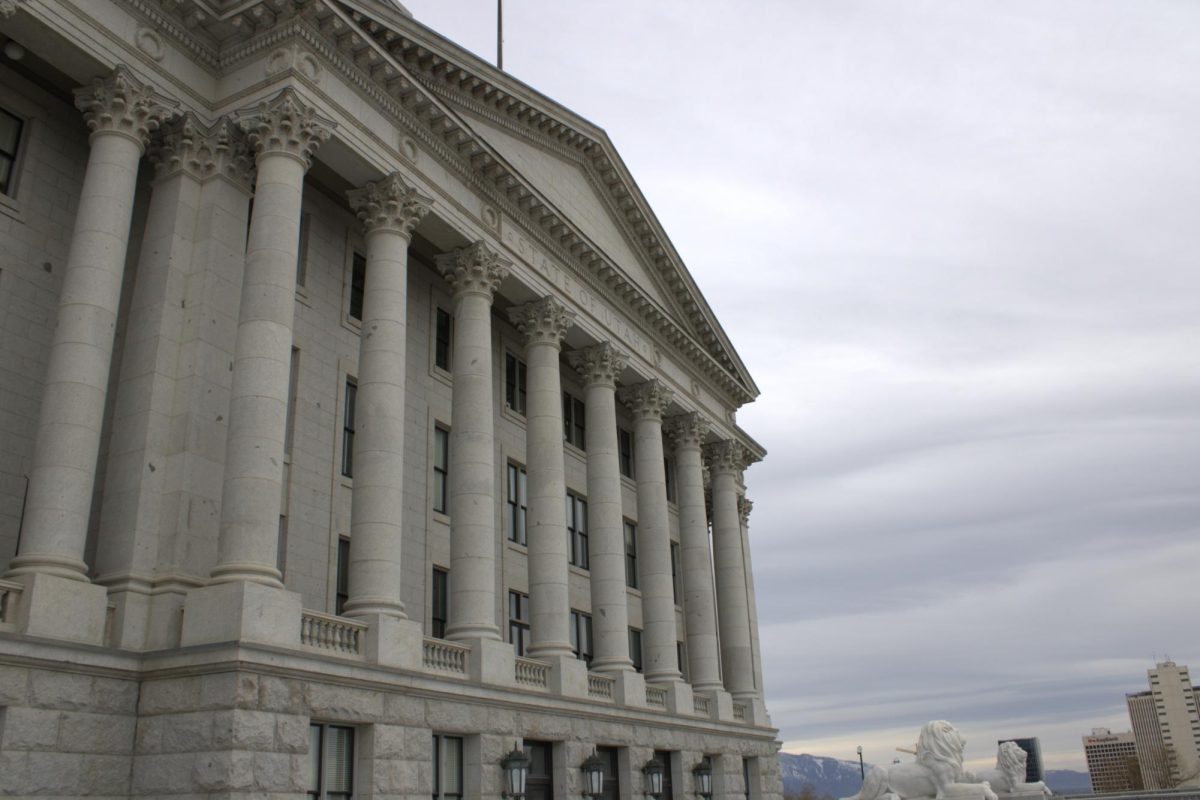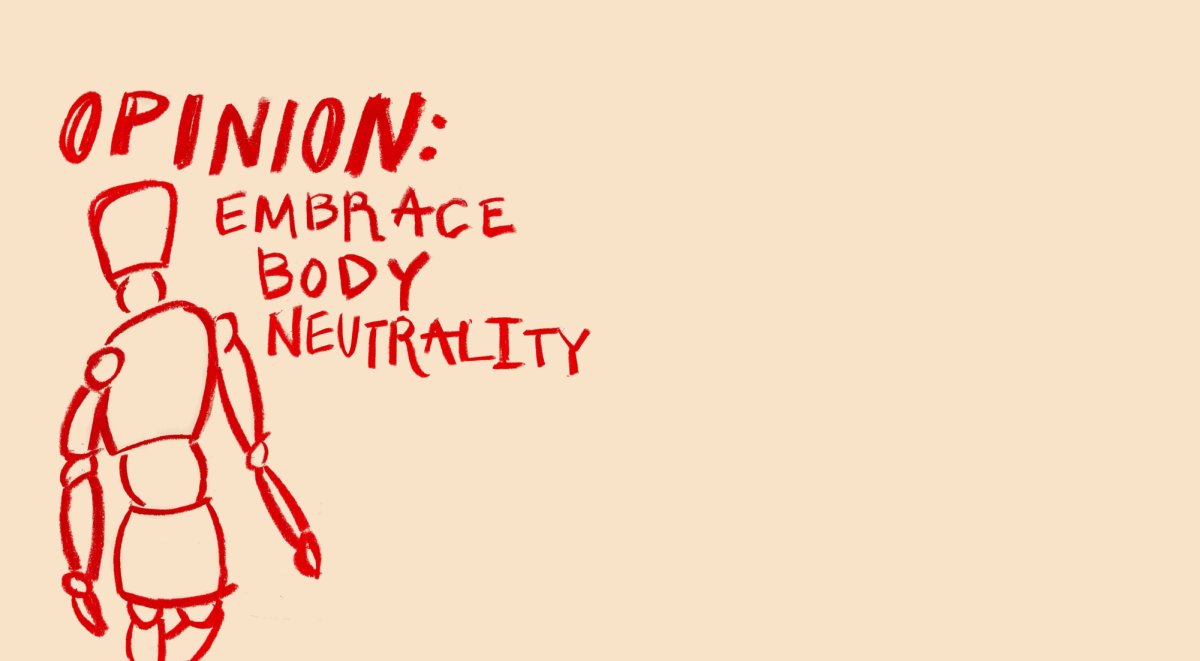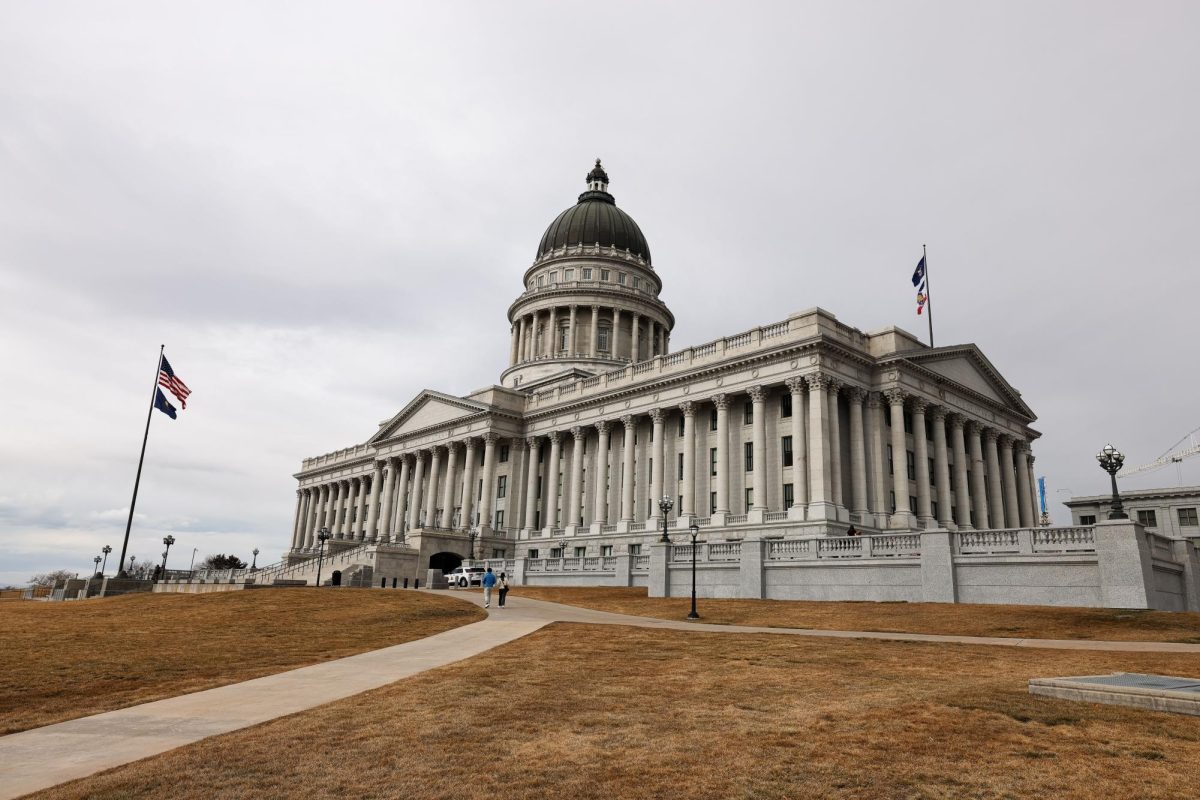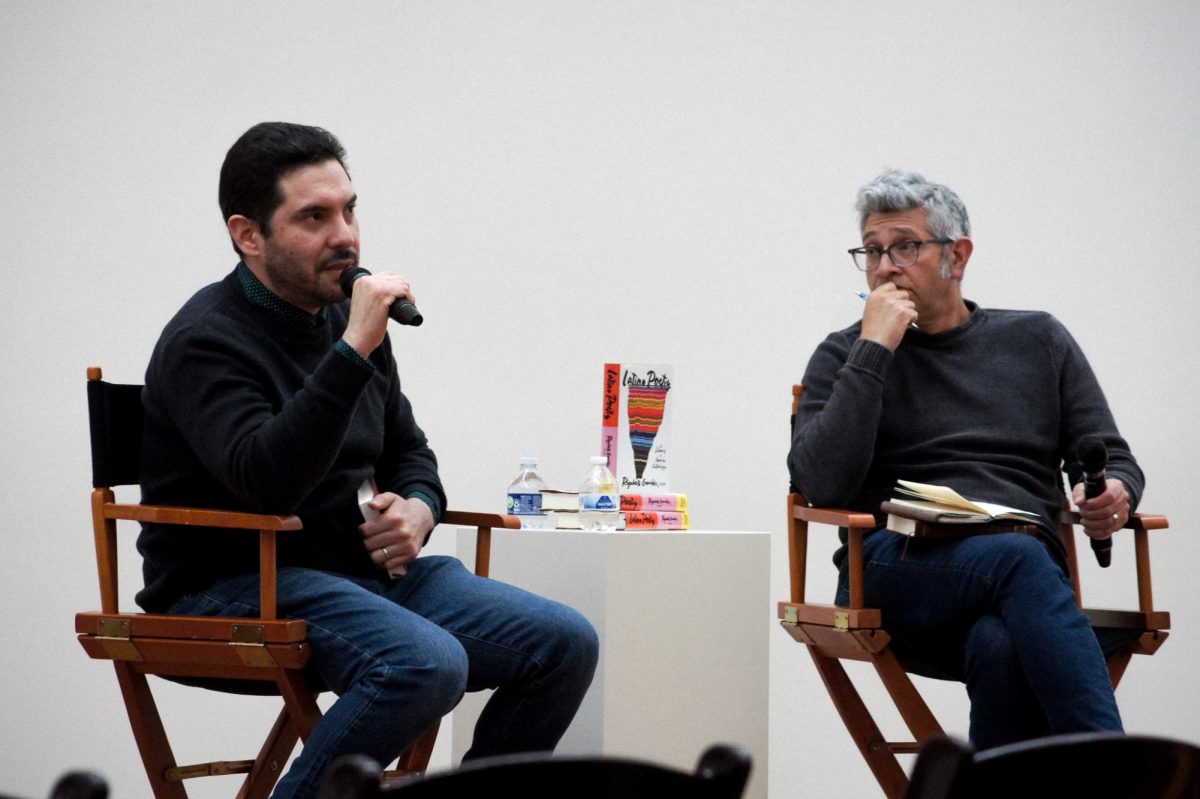Reflecting on 2021 Pride Week and the Rainbow U
The Block U on campus with the colors of the intersectional LGBTQ+ pride flag on March 24, 2021. (Photo by Jack Gambassi | Daily Utah Chronicle)
April 14, 2021
The block U outside of the University of Utah campus store sported some different colors from March 29 to April 3, 2021. Wrapped in the colors of the Progress Pride Flag, the U was a symbol of 2021 Pride Week: Queer at the Intersections.
To commemorate Pride Week, the LGBT resource center scheduled various events to honor LGBTQ histories, cultures and lives.
Kim Hackford-Peer, the associate chair of Gender Studies, has been at the U since 2004 and has found Pride Week to be important because it forces the institution to pay attention to queer histories and current issues.
“It’s frustrating to me that we need a Pride Week, but I still think that we do,” Hackford-Peer said. “I think that we have certainly not arrived at a place yet where being attentive to all the things that we need to be attentive to are commonplace.”
According to Hackford-Peer, Pride Week provides an opportunity to emphasize queer joy, something that is not celebrated enough.
“This is a cool group of people that we are recognizing and an important history … and the revolutionary way of being today, and we should celebrate that,” Hackford-Peer said.
Shelby Hearn, the coordinator of education and outreach for the LGBT Resource Center, echoed Hackford-Peer’s sentiments about celebrating queer students.
“Pride Week … is about celebrating what we’ve accomplished, celebrating the students that are at the U who are queer and talking about what we need to do better as a university community,” Hearn said.
The Rainbow Y
Pride Week at the U came just weeks after LGBTQ students at Brigham Young University felt betrayed by their school.
In March 2020, BYU removed a clause from their Honor Code that banned homosexual relations. However, they soon clarified this action did not change their stance that same-sex romantic behavior is not compatible with BYU’s rules.
On the one-year anniversary of this reaffirmation, about 40 BYU students, composed of members of the LGBTQ community and allies, outlined the concrete Y on the mountain above BYU with different color lights to create a rainbow seen for miles.
Soon after, BYU came out publicly to say they did not authorize the lighting of the Y.
“I have lots of students who are at the U because they’ve left BYU — because they couldn’t be who they were in that space and be valued as a full and important and beautiful human being,” Hackford-Peer said.
While the U did authorize the rainbow wrapping of the U, Hackford-Peer said it was troubling to hear the Board of Trustees announce the U will be honoring Russell M. Nelson, the president of the Church of Jesus Christ of Latter-day Saints, with an honorary degree at 2021 Commencement. Nelson has opposed gay marriage and supported anti-gay policies.
“I think that message is absolutely counter to … the LGBT Resource Center and Pride Week committee and all the people who have poured their heart and soul and time and energy into planning Pride Week,” Hackford-Peer said. “I feel like the institution is undermining their work.”
Because of this and other instances of students fearing being deadnamed at graduation or misgendered in class, some are criticizing the U for being performative by putting up a rainbow U yet failing to protect and uplift their LGBTQ students.
However, Hackford-Peer says it is important to acknowledge the people who wrapped the U are not the same ones who chose to honor Nelson at graduation. Students and staff from the LGBT Resource Center have a different agenda than administration.
Hackford-Peer said because of all of this, it is more complicated than labeling this as “rainbow-washing.”
“I don’t see it as [a] ‘our rainbow’s better than your rainbow’ kind of thing; I see it as people at the university who are 100% dedicated to possibilities for queer joy and unwavering acceptance,” Hackford-Peer said.
According to Hackford-Peer, it could be considered problematic if the U were to only use the rainbow U as a marketing technique. However, she believes denying LGBTQ students the possibility to see such a symbol of acceptance would be wrong.
“I wouldn’t want to deny students the opportunity to see that and to feel the feelings that come when you see it as you walk across campus or as you’re scrolling through your own social media feed,” she said. “I wouldn’t want to deny the opportunity to think about how it’s really, really complicated.”
Work to Be Done
Hackford-Peer said she would like to see more changes made to ensure students do not get deadnamed or misgendered.
“I think it’s important that the students’ names and pronouns as they use them and want them to be used are foregrounded and are available to faculty with ease,” Hackford-Peer said.
Hearn said their office is actively working to help remedy misgendering and deadnaming so students do not have to contact multiple offices and come out to strangers. However, according to Hearn, the U has to do more than get people’s pronouns right.
“Understanding that, yes, getting people’s pronouns [right] is really really important, but [we need to be] taking steps a little bit further into conversations beyond competency trainings — really creating a culture as a university of people who are curious and want to learn more and not just do the bare minimum in terms of inclusion for queer folks,” Hearn said.
As a small office serving the campus population, Hearn said it can be hard, lonely work at times, but 2021 Pride Week was a special moment.
“Seeing this work come together has been pretty heartwarming especially given this past year of isolation from community,” Hearn said. “I was super super stoked to see the wrapped block U. I never would have seen something like that on my college campus.”













